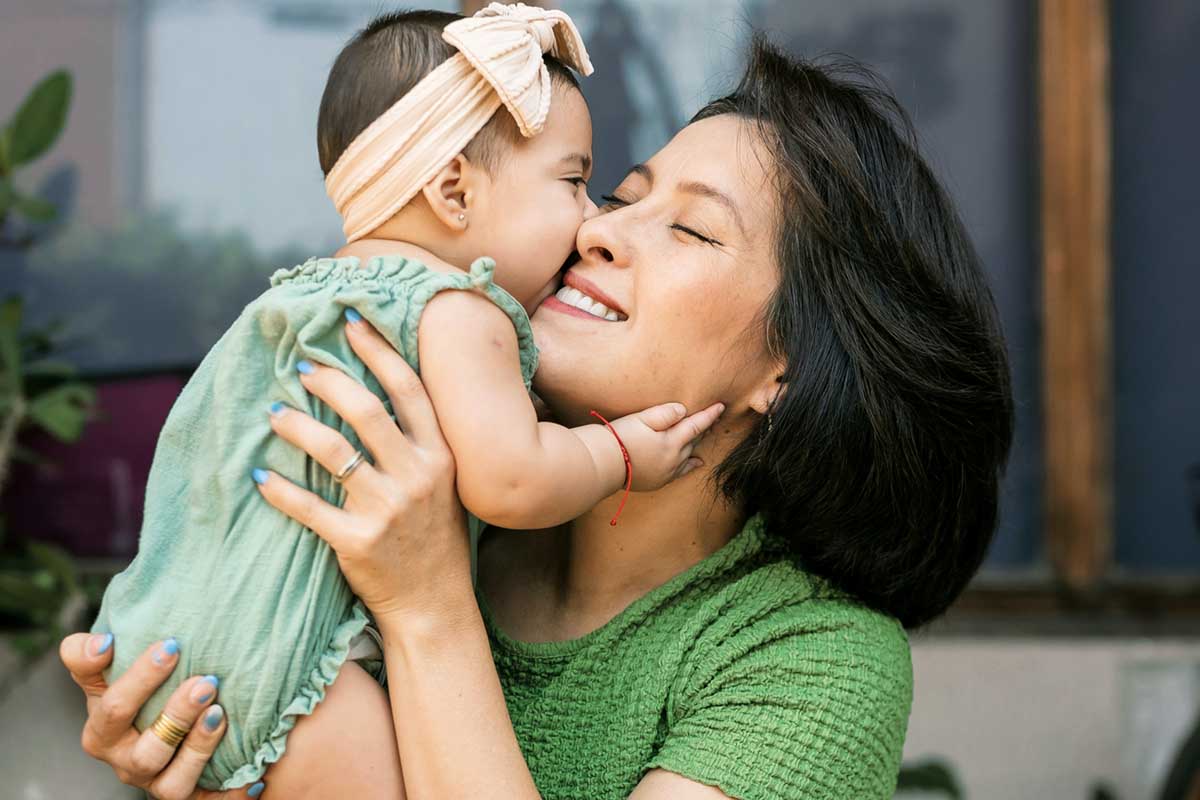Advertisement
Is Your Baby Ready for Solids?
At what age should baby have her first bite of solid food? And, when she’s finally ready, what food should it be? Parents often wonder about starting solids, but luckily there is one expert you can always count on: your baby. She will let you know when she is ready to eat, and it may … Continued
 At what age should baby have her first bite of solid food? And, when she’s finally ready, what food should it be? Parents often wonder about starting solids, but luckily there is one expert you can always count on: your baby. She will let you know when she is ready to eat, and it may be later than you think.
At what age should baby have her first bite of solid food? And, when she’s finally ready, what food should it be? Parents often wonder about starting solids, but luckily there is one expert you can always count on: your baby. She will let you know when she is ready to eat, and it may be later than you think.
Elsa, a healthy, breastfed eight-month-old, would vomit violently each time she tried a bite of solid food. Worried, her parents took her to a pediatrician who put their fears to rest. He said some babies don’t eat anything but breastmilk for up to 18 months, with no ill effect. Sure enough, Elsa nursed exclusively until 13 months when she began to eat solids. At 18 months, she is a plump, nursing toddler who eats a variety of foods.
When To Start
There are few rules around starting solid food, but the consensus among breastfeeding advocacy groups is that a healthy breastfed baby needs nothing except breastmilk, not even water, for at least the first six months of life. One reason for delaying foods other than breastmilk is to prevent food allergies. Calgary naturopath Dr. Bruce Lofting explains that an infant’s immature gut lacks the enzymes to fully digest foods other than breastmilk. As a result, the incompletely digested proteins find their way through the irritated gut into the bloodstream, where they can trigger an allergic response. The protein in cow’s milk is particularly troublesome. In fact, a study reported in the New York Times (Feb. 29, 2000) showed that even one bottle of formula can increase a baby’s chance of developing dairy allergies.
La Leche League International, the mother-to-mother breastfeeding support group, recommends introducing solids sometime in the second half of the first year. Some babies are ready at six months, but some are not ready until they are eight or nine months of age or older.
How do you know when your baby is ready? Frequent nursing often signals a growth spurt, and because breastmilk works on a supply-and-demand basis, the baby has to nurse more to increase her supply. It doesn’t necessarily mean she’s starving for solids. Grabbing at food is not always a reliable indicator either, since babies grab at anything that interests them and shove it in their mouths, whether it’s a forkful of broccoli or a set of keys.
Before you offer your baby solid food, she should be able to sit up and hold objects in her hand. If, when you feed her with a spoon, she turns her head or pushes the food out with her tongue, she may not be ready. One of the easiest ways to know if your baby wants to eat is to offer her food, perhaps on a high chair tray, and then let her feed herself. She won’t eat more than she needs.
On the Menu
Now you think your baby is ready for her first meal but what do you serve? First course: breastmilk! Jeanne Hagreen, lactation consultant at the Prince George Regional Hospital in BC, says it’s a good idea to nurse first, then offer solids as a little extra on top. This ensures that baby is still filling up on the best food, preventing the displacement of nutrients by less nutrient-dense solid foods.
There are no hard-and-fast rules about what baby’s first food should be. Freshly pressed organic carrot juice is one of the first raw foods for baby, providing a high concentration of minerals, vitamins, enzymes and valuable building materials for strong, healthy cells. Some parents mash an avocado; some start with cooked and mashed carrots or sweet potato. Baby also loves strained cooked oatmeal no milk or sweetener needed. Oatmeal is easy to digest and rich in protein, fats and trace minerals important for brain and nerve formation. Foods that are organic and unprocessed will be the most nutritious; for example, organic brown rice cooked to a mush is better and cheaper than boxed baby cereals, as well as cuts down on wasteful packaging.
Keeping to one new food per week will let you know if your baby is sensitive to any particular food, and you can avoid it until her system is more mature. Dr. Lofting warns against overfeeding even foods baby seem to tolerate because over-consumption is a way to develop food intolerance (this applies in adulthood as well). It’s a good idea to avoid high-allergy foods altogether for at least the first year, including cow’s milk, egg whites, peanuts and shellfish.
What About Vitamins’ Minerals?
Baby cereal manufacturers spend a lot of money on advertisements that undermine mothers’ confidence, making them worry that their babies are not getting all the nutrients they need. In fact, a baby who is nursing and eating whole, unprocessed foods doesn’t need any vitamin or mineral supplements. Breastmilk contains less iron than cow’s milk, but it is in a form that is very absorbable (about 49 per cent), while the iron in formula and baby cereals is poorly absorbed (about four per cent). When baby begins to eat solids, iron-rich foods such as spinach or lentils will supply all the iron she needs. As for vitamin D, according to La Leche League, there is no reason to give supplemental vitamin D to a nursing child; a few minutes’ exposure to sunlight per day allows the body to make any extra it needs.
Breastmilk is a free, clean, non-polluting, hypoallergenic, immunity-enhancing living substance. Make sure enough vitamins and minerals are in mom’s diet, whether through food or nutritional supplements, and baby will get her “vitamin pill” each time she nurses, in the most absorbable form, and in the most delightful way.
Did You Know?
One and a half million infants die worldwide each year from diseases related to artificial feeding.
Source: INFACT Canada, infactcanada.ca
The Formula for “Formula”
The formula for formula isn’t very scientific. Take corn syrup, whey from cow’s milk, cornstarch, cheap tropical oils, throw in a few vitamins and minerals, and process. Sell in wasteful packaging, market aggressively to hospitals, new mothers and Third World countries with inadequate drinking water. Charge enough to amount to a per-baby cost of more than $2,000 per year. Ignore the cost of formula-related illnesses and deaths when calculating profits of $8 billion a year for the industry.




